Feeling empty and detached? You could be suffering from emotional numbness. Feeling numb may result from emotional detachment or a syndrome known as depersonalisation.
It is, in essence, the experience of feeling disconnected, surreal, and unable to identify emotions. When you are feeling numb, you are also feeling empty and detached, as if you are an outside observer of your own life. You see your life without living in it. You may also feel that you are losing control over your thoughts or actions.
- Do you feel nothing?
- Do you feel emotionally empty?
- Do you feel detached from your family and friends?
- Do you look into the mirror and feel like you see a different person?
- Do you feel like a robot, operating life on auto-pilot?
- Do you feel that there is no joy in your life?
- Do you have a surreal feeling as you go through your daily life?
If you identify with the above, you might be struggling with or a form of dissociation known as depersonalization. Emotional numbness is prevalent in our emotion-phobic modern society- yet it is one of the most underestimated and unaccounted for conditions.
“Louise often feels like part of her is “acting.” At the same time, “there is another part ‘inside’ that is not connecting with the me that is talking to you,” she says. When the depersonalization is at its most intense, she feels like she just doesn’t exist. These experiences leave her confused about who she really is, and quite often, she feels like an “actress” or simply, “a fake.” ― Daphne Simeon, Feeling Unreal
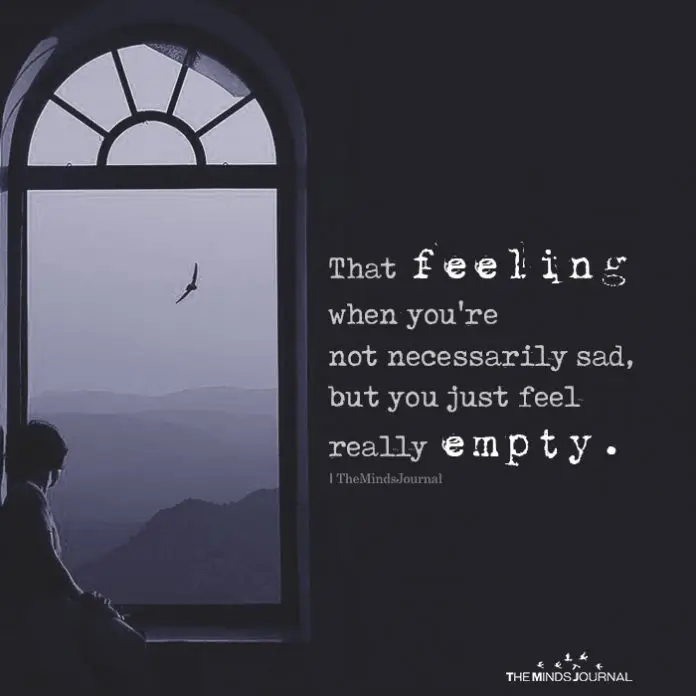
Feeling Numb: How We Become Emotionally Detached And Depersonalised
On the surface, it might seem strange that intense people who feel so much would struggle with numbness. However, your sensitivity and intensity could be precisely why you had turned to numbness as an armor to protect yourself.
It might be that you were overwhelmed by too many and too strong emotions from a young age so that you have found numbing as a way to cope. It might be that your childhood environment was violent and precarious, so you had no choice but to detach from what was happening.
In the wild, self-defense is essential for survival. When faced with life-threatening danger, animals will either retreat, attack, assume threatening poses, spout poison, or camouflage themselves. What do we humans do when confronted with physical danger or emotional trauma? We might verbally or physically retaliate, we might run away. If neither is an option, we detach from ourselves, hide our true feelings by disappearing into a zone where our minds could live in denial of reality.
Once we have experienced a physically or emotionally painful situation, such as childhood abuse, neglect, or other forms of trauma, we will do all we can to defend against ever being hurt again. We do so by building a wall against the outside world.
Like a protective mechanism in an electric circuit, numbness and emptiness’ kicks in when we are unable to bear the weight of the truth.
Unfortunately, for some of us, the oppressive sense of abandonment, rejection, terror, or shame persists beyond the traumatic event, and the numbness becomes an auto-pilot response. Like Pavlov’s dogs, we become hard-wired to respond to life in a certain way.
Research has shown that childhood trauma emanating from separation (e.g., death of a parent), physical neglect, emotional abuse, physical abuse, witnessing of violence, and sexual abuse has a strong bearing on their tendency to develop depersonalization.
Of the above factors listed, emotional maltreatment by a parent or parents were found to be the most significant trigger for emotional numbness. Since emotional maltreatment by a parent does not carry any visible signs, its impact on the child often goes undetected until much later in life when he/she exhibits an inability to self-regulate emotions.
Read How Children Of Obsessed Parents End Up Feeling Lost and Empty
Even in the absence of abuse, an emotionally sensitive child can feel out-of-place in their own home; especially if the parents fail to recognize how their child may feel and think differently from them. Telling a hypersensitive child to be stoic and rational, or excessively criticizing them when they have emotional outbursts, can push the child to feel incredibly alienated.
The effect of being an apple that falls far from the tree is compounded by our culture, which promotes the values of masculinity, stoicism, regimentation, and rationalism. As paradoxical as it sounds, emotionally intense people are the most vulnerable to using emotional numbness as a shield to appear ‘normal’ in the world.
Initially, disconnecting made us feel pseudo-calm. It allows us to go on in life, to attend to our work responsibilities, chores and avoid others from worrying about us. It may even be convenient and allow us to appear’ ‘high-functioning’ in the outside world. But this facade comes with a high price. Emotional numbness inhibits our ability to laugh wholeheartedly, express real sadness, or show excitement. We become bystanders in our lives.
Eventually, as we get accustomed to living inside these walls we build around us, we forget who we truly are. We become detached not only from the outside world, but also from our innermost passion, playfulness, and vitality.
People experience numbness differently. You may feel chronically bored, or you may struggle to find words for your feelings. You may detach from your body, gradually losing the ability to be attuned with your body signal of hunger, tiredness, or even losing your sex drive. You may lose the ability to respond to events with joy or sadness, or you struggle to connect with others in a deep and meaningful way.
In Schema Therapy, the wall you built between your true self and your feelings is called “a detach protector’. Much like what its name indicates, it started as a benign attempt to protect us. It was valuable at some point in your life, but might have expired as a survival strategy and is now doing nothing but holds you back.
It is essential to understand that emotional numbness is not a conscious choice and must be compassionate with ourselves. Rather than resenting what has happened, we ought to be grateful to the ‘detached protector’ for saving our lives from unbearable pain.
“Oh God just look at me now… one night opens words and utters pain… I cannot begin to explain to you… this… I am not here. This is not happening. Oh wait, it is, isn’t it?
I am a ghost. I am not here, not really. You see skin and cuts and frailty…these are symptoms, you known, of a ghost.” ― Emily Andrews, The Finer Points of Becoming Machine
10 Signs Of Emotional Numbness
1. You are unable to experience or express emotions – positive or negative, including love and joy.
2. You routinely engage in mind-numbing activities such as TV watching or procrastination. You gain no pleasure from these activities, yet you do not feel motivated to do anything else.
3. You feel disconnected from your own body. You feel fatigued, lifeless, and do not receive signals from your body regarding huger, thirst, tiredness, or other needs.
4. You do not have reactions in situations that would typically evoke emotions such as watching movies or receiving certain news.
5. You feel like a passive observer of your life. Rather than living each moment with vitality, life seems unreal.
6. You go about each day in an auto-pilot mode. In emotional numbness or depersonalization, you are not truly living. You are watching your life in the audience seat.
7. You no longer find joy in doing the activities you once enjoyed. Your memories feel like someone else’s story.
8. You become less and less interested in socializing or connecting with people and feel detached from friends and family.
9. You feel no one knows the real you. And gradually, you know yourself less and less. You lose touch with your own interest, passions, and dream.
10. You feel a lingering sense of boredom.
Read 13 Signs You’re Struggling With Emotional Numbness (The Secret Illness)
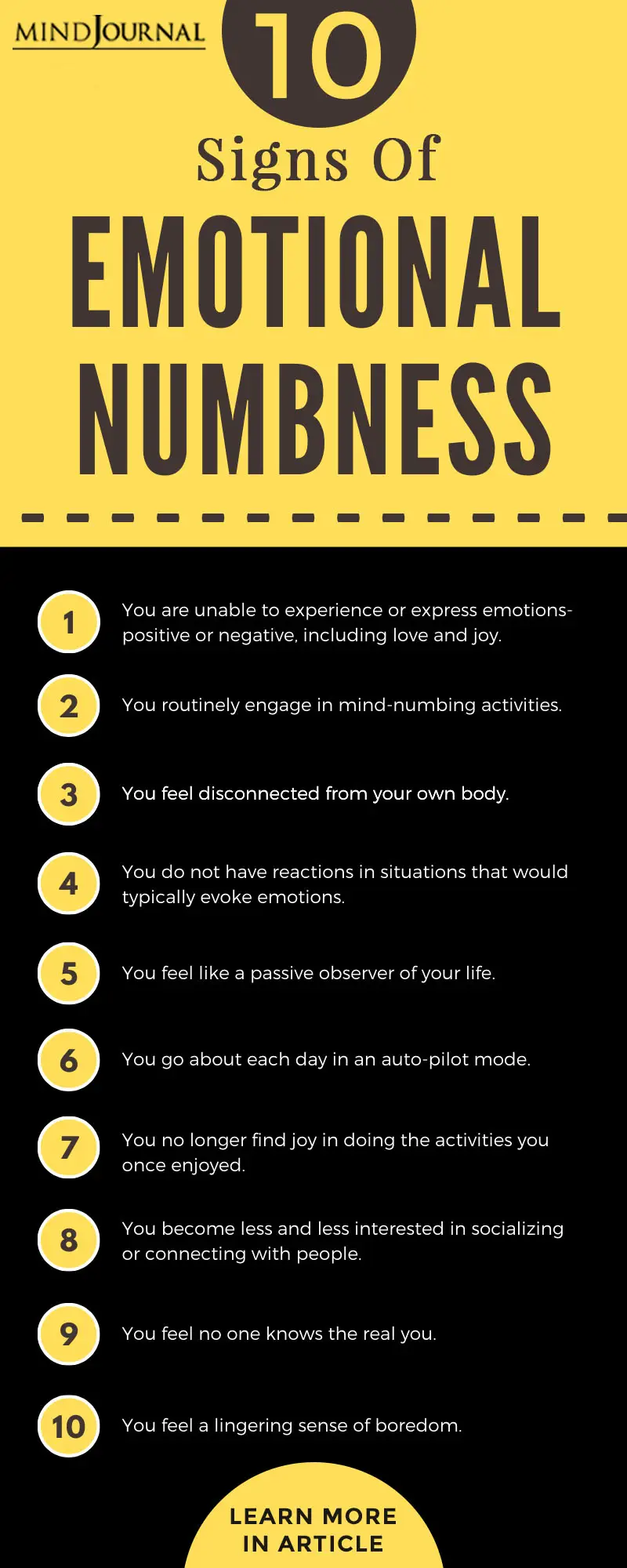
Do You Want To Be Numb Forever?
Emotions are what makes us humans.
Emotional avoidance as a coping mechanism works for a while, but ultimately, your trauma and feelings are going to find a way to creep back. When the flood gate bursts open, you may be shocked, feel out of control, and frightened by your own behaviors. You may then turn to drastic measures to push the feelings back down, engaging in alcohol and drug abuse, overspending, bingeing, self-mutilation, and other impulsive behaviors.
If left untreated, emotional numbness can manifest itself in the form of chronic physical ailments. It is a vicious cycle that becomes exasperating and physically draining, leaving you with even lesser energy to engage with family and friends. To its extreme, just like many who have PTSD or Complex PTSD, you may develop suicidal ideations.
When we turn away from what we consider as negative emotions, we also say goodbye to joy, love, and all that life has to offer. In the end, we are lonely and stranded in a cold, barren place. There will always be a voice inside us that reminds us we are wasting our lives away without living fully.
Inside of you is a wild, innocent and playful child.
Deep down, you long to live life with your full heart, to feel safe and held by others around you, and to love them without holding back.
Numbness as a survival strategy does not have to be forever. Through the construction of emotional skills and resilience, you can begin to dip your feet into the deep waters of feeling. You can start with small steps such as learning the language of emotions or building the ability to regulate. Slowly but surely, you will re-open the door to experience life’s joy, abundance, and aliveness—things that a hidden part of you has long been yearning for.
“Dissociation, a form of hypnotic trance, helps children survive the abuse…The abuse takes on a dream-like, surreal quality and deadened feelings and altered perceptions add to the strangeness. The whole scene does not fit into the ‘real world.’ It is simple to forget, easy to believe nothing happened.” ― Renee Fredrickson
Things You Can Do To Overcome Emotional Numbness
Emotional numbness is a complex psychological condition. It requires courage and commitment, but layer-by-layer, you can peel back layers of armor and reclaim the true self that has long waited for your attention.
Here are some of the healing steps in this process.
1. Let go of any guilt or shame that comes from being numb.
As we stated earlier, emotional numbness is a psychological response and not something that you have consciously chosen. Your inability to express feelings for others might have hurt and disappointed those that are the closest to you. Perhaps you have lost a few loving relationships along the way.
The past cannot be undone, it does not have to mean you carry shame or guilt for the rest of your life. Remember, your numbness grew out of pain and was nothing but a desperate attempt to survive. Approach your numbness with compassion, and even gratitude. Love yourself, rather than condemn yourself, back into life.
2. Embrace tenderness.
As you first thaw the armor that you have held up for years, you may be overcome with a tsunami of emotions as you reveal your true feelings. You may feel tender, emotional, and surprise yourself with bursts of laughter and years.
Fear not, as you are simply returning to your natural state. Your body will slowly learn that it is safe to feel feelings. Very soon, you will even enjoy the sense of aliveness and connection it gives you. Even if it is a turbulent ride, it is a glorious one.
Read Emptiness Inside: Why You Feel Empty In Life & How to Fill It
3. Visualize the barrier and dissolve it.
In a quiet place, try and visualize your emotional numbness as a wall you have created, then ask yourself the following questions:
- How thick is the wall?
- What is the wall made of? Is it cold metal? Plastic? Or maybe cotton wool?
- Does the wall feel cold or warm? Does it move around?
- Has it remained static or grown in thickness over time?
- Do you see that the wall now has cracks in it?
- If your wall has a personality and a voice, what is it saying to you?
- Are you ready to let it go?
4. Thanking and transforming the numbness.
Thank the numbness for the purpose it has served in your life. But now it is time to break through and move towards the other side.
Say to your shield “Thank you for protecting me all these years. Without you, couldn’t live through those hard times. However, I am stronger now, and I no longer need you. I promise you, I will take care of myself. It is safe for us to say goodbye.”
You may add affirmations that help you move forward in life:
- ‘I am ready to experience life’
- ‘It is okay for me to feel sad sometimes.’
- ‘Feeling tender is not a sign of weakness’
Things may not change overnight, but the next time you feel the shield emerging, you would be more aware. It will no longer be an unconscious destructive force outside of your control. Your emotional wall is there to protect you in times of danger. You may choose to use it, or not. But the power remains in you.
5. Connect to your physical self.
For people with emotional numbness, life can be an out-of-body experience. Reconnecting with your physical body is an essential step in feeling alive.
Different things work for different people. Practicing deep-breathing techniques, self-massage, yoga, meditation, and tai-chi are some of the ways to connect with your mind, body, and soul.
Read 7 Informal Meditation Practices: How To Meditate Without Meditating
6. Do something cathartic.
Anger is a challenging emotion for many people. It may well be the very emotions that you have defended against with your shield. Allow yourself to get in touch with your vitality through the following cathartic exercise, even if it feels unnatural at first.
- Scream into a pillow to let it all out.
- Write a journal to document moments of your life that created feelings of immense sadness or loneliness.
- Paint or write a poem to express yourself creatively.
- Enrol for an intense dance or exercise class.
- Join a group for people with emotional numbness disorder.
Finally, dear sensitive souls, I would like to remind you are you are worth a full life.
No matter how have you pretended and defended for the last many years, deep inside your longing to love and to receive love once again never dies.
When you begin to acknowledge the deep-rooted sense of fear, shame, abandonment, or rejection, a natural thawing process will follow. Once the weight of heavy emotions is lifted, for the first time in a long time, you will see the reservoir of passion and vitality that have always been there, waiting to be discovered by you.
Visit Imi Lo’s website Eggshell Therapy for more such informative articles.
Written By Imi Lo Originally Appeared In Eggshell Therapy
If you are someone who has suffered from emotional numbness for a very long time, then you need to be patient with yourself, while you try to get out of that zone. Emotional numbness can be a tricky and hard thing to move on from, but with a little bit of self-love, support, and optimism, you will be able to do it.
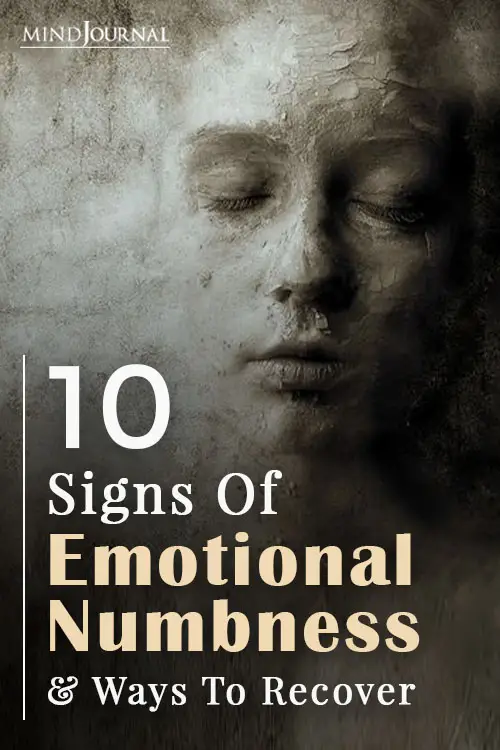
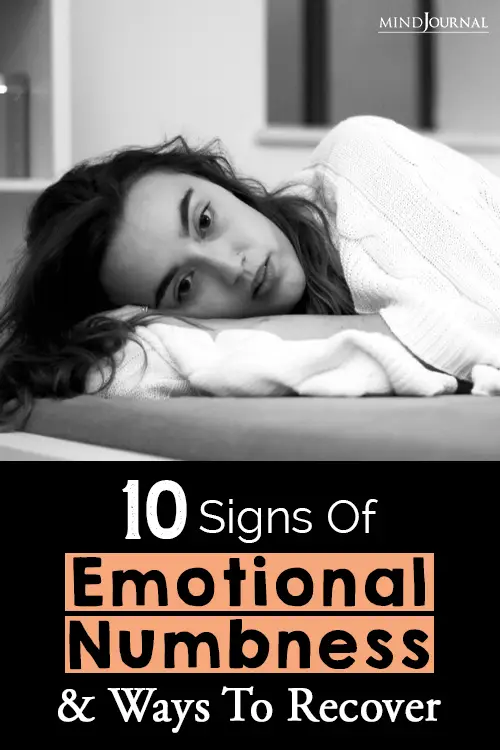
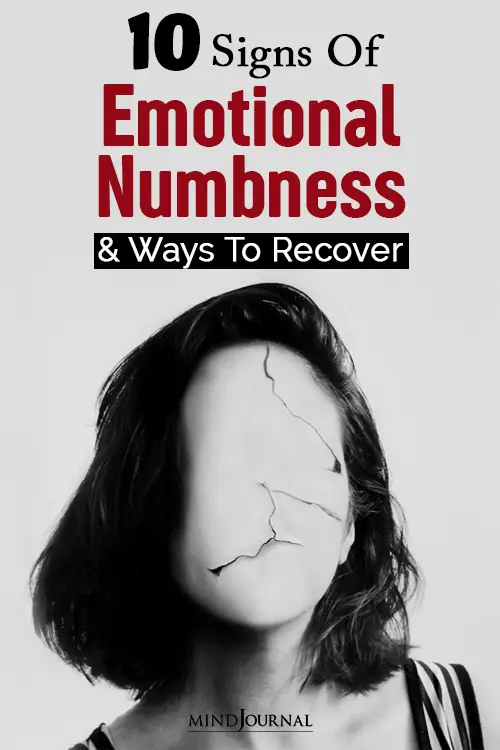
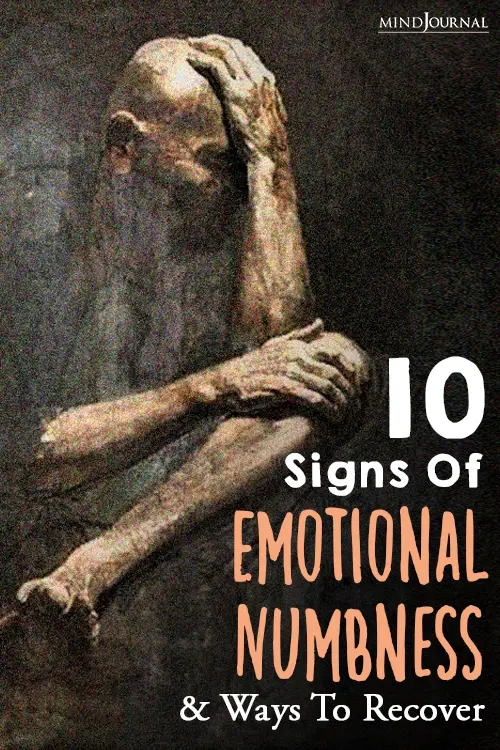
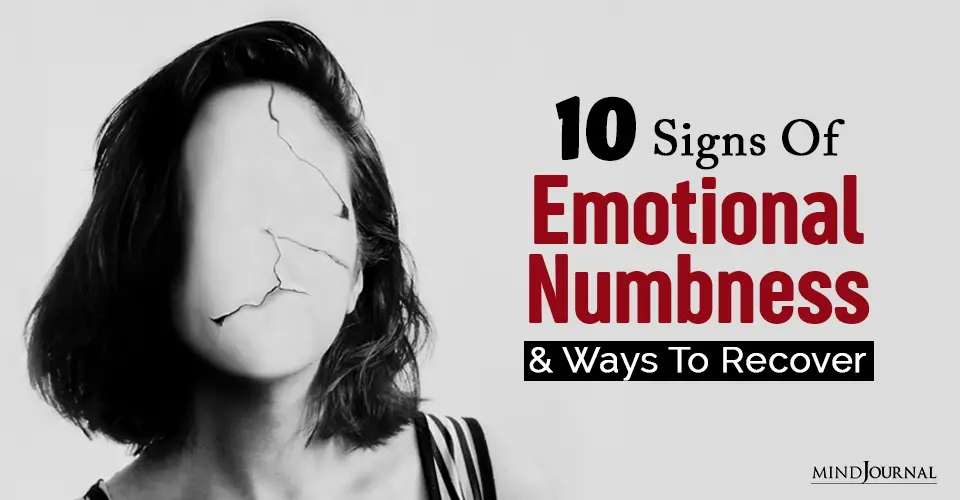







Leave a Reply
You must be logged in to post a comment.